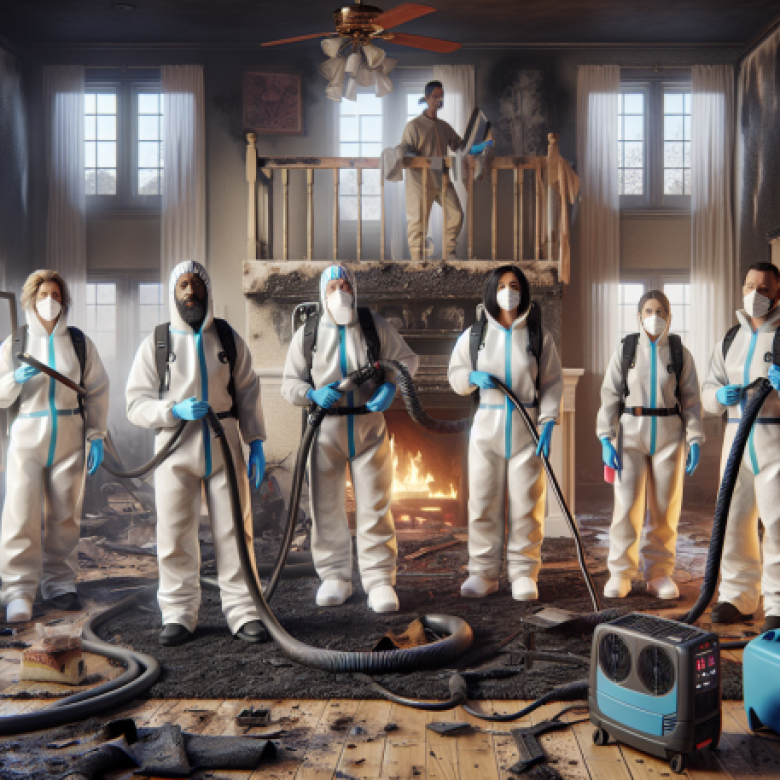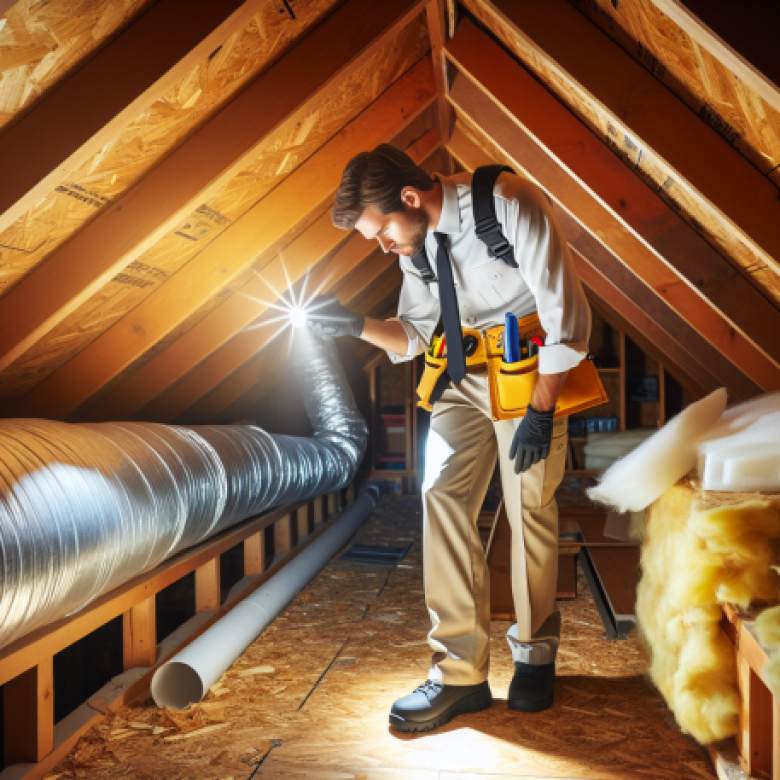Are you aware of the impact indoor air quality can have on your health? At Projekt Restoration, we are not just experts in water, fire, and mold restoration, but we also understand the significance of maintaining good indoor air quality. As a leading restoration company, we believe it’s crucial to educate our clients about the potential health risks associated with poor indoor air quality.
Indoor air quality can significantly affect your health, productivity, and comfort. The presence of pollutants such as mold, dust, pet dander, and volatile organic compounds (VOCs) can lead to various health issues ranging from allergies and asthma to more severe respiratory diseases. At Projekt Restoration, we offer professional mold assessments and remedial solutions to ensure your indoor environment is safe and healthy.
But how can you improve your indoor air quality and protect your health? Stay tuned as we delve deeper into the subject, providing insights from renowned health experts and offering practical tips to enhance your indoor air quality. Join us as we explore the impact of indoor air quality on health and discover ways to create a healthier living and working environment.
Understanding Indoor Air Quality
Indoor air quality, a critical aspect of a healthy living environment, refers to the condition of air within and around buildings and structures. It’s influenced by various factors, including humidity levels, ventilation, and the presence of pollutants. For instance, inadequate dehumidification can lead to mold growth, negatively impacting air quality.
Moreover, the presence of biohazards, such as bacteria and viruses, can also compromise indoor air quality. Regular biohazard clean-up is essential to maintain a healthy indoor environment.
The significance of indoor air quality cannot be overstated. It directly affects our health, comfort, and well-being. Poor indoor air quality can lead to various health issues, including allergies, respiratory problems, and even more severe conditions. Therefore, regular mold assessment and remediation are crucial to ensure a healthy living or working space.
In conclusion, understanding and maintaining indoor air quality is a vital component of health and wellness. It requires consistent attention and proactive measures to ensure optimal living conditions.
The Components of Indoor Air
Indoor air often harbors a variety of pollutants, including dust mites, mold spores, pet dander, and volatile organic compounds (VOCs). These pollutants originate from various sources, such as furniture, carpets, building materials, cleaning products, and even our own bodies. For instance, dust mites and pet dander are common in homes with pets, while VOCs are typically emitted from paints, varnishes, and cleaning supplies.
These pollutants can significantly degrade indoor air quality, leading to various health issues. For example, dust mites and mold spores can trigger allergies and asthma, while exposure to high levels of VOCs can cause headaches, dizziness, and long-term health effects.
To mitigate these risks, it’s essential to maintain a clean, well-ventilated environment. Regular cleaning can help reduce dust mites and pet dander, while proper ventilation can help dilute VOCs and prevent mold growth. For professional assistance, consider reaching out to Projekt Restoration, who offer services such as mold removal and dehumidification to improve indoor air quality.
The Impact of Poor Indoor Air Quality on Health
Poor indoor air quality can lead to both short-term and long-term health complications. Short-term effects often include headaches, dizziness, and fatigue, which can be easily mistaken for common ailments. However, long-term exposure can result in more serious conditions such as respiratory diseases, heart disease, and even cancer. For instance, the presence of mold, a common indoor pollutant, can exacerbate asthma and cause allergic reactions.
Certain populations are more susceptible to the effects of poor indoor air quality. These include the elderly, children, and individuals with pre-existing health conditions. For example, children, due to their developing respiratory systems, are particularly vulnerable.
To mitigate these risks, it’s crucial to maintain good indoor air quality. Services such as mold assessment and dehumidification can help identify and address potential issues. Moreover, in case of severe damage, reconstruction services can ensure a safe and healthy living environment.
How to Measure Indoor Air Quality
Measuring indoor air quality involves various methods and tools, each with its unique advantages and limitations. One common tool is the air sampling monitor, which captures and analyzes air particles over a specific period. This method is highly accurate but can be time-consuming and costly. On the other hand, real-time monitors provide instant readings of air quality, offering convenience and immediate results. However, they may not be as thorough as air sampling monitors.
When considering the frequency of indoor air quality measurement, it largely depends on the environment and its usage. For instance, a mold-prone area may require more frequent checks than a well-ventilated office space. It’s also crucial to measure after any significant event that could impact air quality, such as a fire or water damage.
Despite the variety of methods available, none are perfect. Therefore, it’s advisable to use a combination of tools and techniques for a comprehensive assessment. For professional assistance, consider reaching out to Projekt Restoration, who can provide expert guidance on maintaining optimal indoor air quality.
Strategies for Improving Indoor Air Quality
Improving indoor air quality is crucial for maintaining good health. One effective strategy is regular ventilation. Opening windows or using exhaust fans can help circulate fresh air and reduce pollutants. Another strategy is maintaining a clean environment. Regular dusting and vacuuming can minimize allergens and pollutants. Additionally, using air purifiers or dehumidifiers can further enhance air quality.
For more personalized advice, consider consulting with professionals. Our team at Projekt Restoration can provide expert guidance tailored to your specific needs.
Plants are also a natural way to improve air quality. They absorb toxins and release oxygen, contributing to a healthier indoor environment. However, it’s essential to choose the right plants and maintain them properly.
Lastly, regular maintenance of HVAC systems is crucial. It ensures efficient operation and prevents the buildup of mold and bacteria. For professional help, check out our mold removal services.
Implementing these strategies can significantly improve indoor air quality and, consequently, your health. Remember, a healthier home is a happier home.
The Role of Ventilation in Maintaining Indoor Air Quality
Ventilation plays a crucial role in maintaining indoor air quality. It helps regulate airflow, reducing the concentration of pollutants and enhancing air freshness. There are various types of ventilation systems, each with a unique impact on indoor air quality. For instance, natural ventilation relies on wind and thermal buoyancy, while mechanical ventilation, such as HVAC systems, control air exchange rate using fans and ductwork.
To optimize ventilation for better indoor air quality, ensure regular maintenance of your ventilation systems. This includes cleaning and replacing filters, which can trap pollutants. Additionally, consider using thermal imaging to detect air leaks and improve insulation.
Moreover, consider the use of dehumidifiers in high-humidity areas to prevent mold growth. Remember, effective ventilation is a key component of indoor air quality, contributing to a healthier living environment.
The Future of Indoor Air Quality
In the realm of indoor air quality management, current trends are leaning towards advanced technologies and personalized solutions. The rise of smart devices and IoT has paved the way for real-time air quality monitoring and control. This not only ensures healthier living spaces but also contributes to energy efficiency.
In the future, we might witness a surge in the use of AI and machine learning in managing indoor air quality. These technologies can predict and adjust air quality parameters, making our homes and offices more comfortable and healthier.
However, these advancements could also bring about health implications. As we become more reliant on technology, the risk of exposure to electromagnetic fields and other tech-related pollutants may increase.
For more information on how to manage indoor air quality, check out our mold assessment and dehumidification services. If you need personalized solutions, feel free to contact us.
Frequently Asked Questions about Indoor Air Quality
"What are the common pollutants affecting indoor air quality?" Indoor pollutants range from biological sources like mold and pollen to chemical pollutants such as radon and volatile organic compounds (VOCs). Regular mold assessments can help identify and mitigate biological pollutants.
"How does indoor air quality impact health?" Poor indoor air quality can lead to a variety of health issues, including allergies, respiratory problems, and even heart disease. Ensuring proper dehumidification can help maintain healthy indoor air quality.
"Can indoor plants improve air quality?" While indoor plants can contribute to improved air quality by absorbing CO2 and releasing oxygen, they are not a standalone solution. A comprehensive approach, including regular reconstruction and maintenance, is necessary for optimal indoor air quality.
"Does ventilation affect indoor air quality?" Yes, proper ventilation plays a crucial role in maintaining good indoor air quality by reducing the concentration of pollutants. It’s essential to have a well-maintained ventilation system to ensure a healthy indoor environment.
Remember, maintaining good indoor air quality is not a one-time task but a continuous process. Regular assessments and necessary actions are key to a healthy indoor environment.
Conclusion: The Importance of Indoor Air Quality for Health
In essence, the quality of indoor air plays a pivotal role in our health. Poor air quality can lead to numerous health issues, including allergies, respiratory problems, and even chronic diseases. Therefore, maintaining good indoor air quality is not just a luxury, but a necessity.
Taking action to improve your indoor air quality is a proactive step towards safeguarding your health. This could involve regular cleaning, using air purifiers, or seeking professional help. At Projekt Restoration, we offer comprehensive services to help you achieve and maintain optimal indoor air quality.
Our mold assessment and dehumidification services are particularly beneficial in preventing and eliminating mold growth, a common indoor air pollutant. Remember, your health is your wealth, and taking care of your indoor environment is a significant part of that. Don’t wait until it’s too late, take action today.




